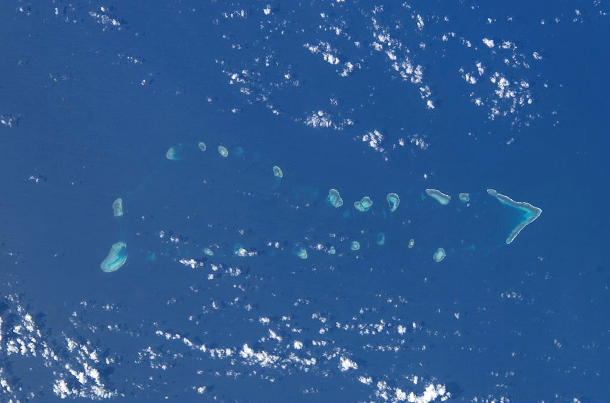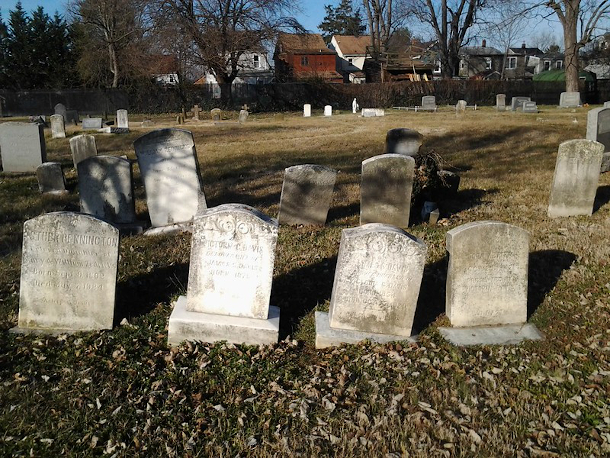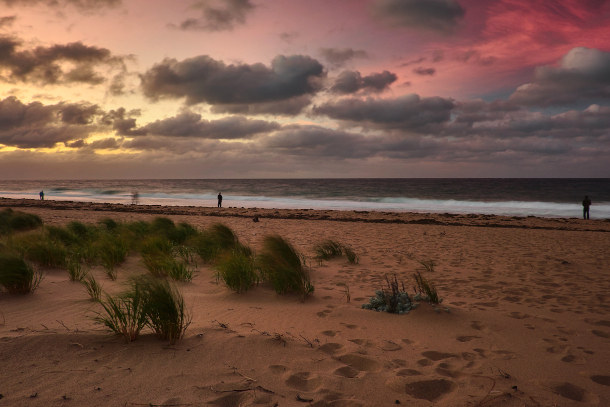Beyond the Headlines
Air Date: Week of August 20, 2021

The Spratly Islands and reefs in the South China Sea, as seen from space. (Photo: Image Science and Analysis Laboratory, NASA-Johnson Space Center, Public Domain)
This week, Environmental Health News Editor Peter Dykstra and Host Paloma Beltran discuss environmental fallout from the geopolitical standoff in the South China Sea. They also talk about how floods are washing away Black history in a Maryland cemetery, and in the history calendar, it’s 60 years since President Kennedy designated Cape Cod National Seashore.
Transcript
DOERING: It’s Living on Earth, I’m Jenni Doering.
BELTRAN: And I’m Paloma Beltran.
It's that time of the broadcast when we take a look beyond the headlines with Peter Dykstra. Peter's an editor with Environmental Health News, that's ehn.org and dailyclimate.org. And he joins us now from Atlanta, Georgia. Hey there, Peter, what do you have for us this week?
DYKSTRA: Hi, Paloma. We're going to take a look at a geopolitical and military standoff in the South China Sea, it's made some of its own headlines, but it also has some environmental buzzkill attached to it.
BELTRAN: So what's the environmental issue here?
DYKSTRA: In the South China Sea, the People's Republic of China is looking to build a military base and claim some property in the form of artificial islands. They've directed their fishing fleets to move in around the islands. And they're building a runway and a military base in the middle of what had been relatively pristine waters.
BELTRAN: And what effect is that having?
DYKSTRA: Well, number one, there are hundreds of boats going in and out of there: China's fishing fleets, fishing fleets from the nations who object to this, like Vietnam and the Philippines and Malaysia; occasionally, American naval boats keeping a watchful eye on this situation. But primarily, the construction ships and the Chinese naval ships that are pretty much stationary around these islands have caused damage to coral reefs, largely by helping to create algal blooms, and those in turn, are largely created by sewage that's dumped by these ships, harming the waterways that China wants to claim as its own land.
BELTRAN: Well, let's hope something can be done. It would be a shame to lose this marine habitat. What else do you have for us this week, Peter?

Headstones in Brewer Hill Cemetery, which is home to the remains of more than 7,000 slaves, freed African Americans, and Black veterans. (Photo: Ken Mayer, Flickr, CC BY 2.0)
DYKSTRA: In Annapolis, the capital city of Maryland, there's some Black history that could be washed away with a link to climate change. The Brewer Hill Cemetery is the oldest African American graveyard in Annapolis. It contains remains of more than 7000 people, some slaves, freed slaves, historic figures in the African American community, and veterans from the Civil War, the Spanish American War, World Wars One and Two, and even the Korean War. There's a real problem, because the torrential rains that have become more frequent due to climate change, are literally washing the graveyard away.
BELTRAN: And as you mentioned, Peter, this is a historic site. So I imagine people want to protect it. Is there anything being done?
DYKSTRA: Yeah, part of it is just changing the building codes and regulations for the structures around the cemetery. The other part of it is simply climate and the big picture change. To limit the damage of any kind from climate change is something that would help save this historic cemetery.
BELTRAN: Peter, what do you have for us from history books this week? I understand you have a personal connection to this one.
DYKSTRA: I do. It's the 60th birthday this month of the Cape Cod National Seashore. Senator John F. Kennedy was the big proponent in getting the first National Seashore designation. And lo and behold, by 1961, Senator Kennedy was President Kennedy. He got to sign his pet project into law, protecting a huge amount of the outer Cape, the part that faces the ocean.

Sunset at Cape Cod National Seashore, which President John F. Kennedy designated on August 7, 1961. (Photo: Daniele Bertin, Flickr, CC BY-NC-ND 2.0)
BELTRAN: Yeah, it's a beautiful place. But unfortunately, it's one of the multiple sites in the East Coast that are threatened by sea level rise.
DYKSTRA: That's right. You gotta remember Cape Cod is nothing more than a sandbar created by the end of the Ice Age thousands of years ago. It's important to me because I spent at least a couple weeks of every year of my life, for years, at my uncle's place about a half mile from the National Seashore. And I got to see nature firsthand in this relatively pristine protected area. A happy 60th birthday to the Cape Cod National Seashore.
BELTRAN: Well, thank you, Peter. Peter Dykstra is an editor with Environmental Health News. That's ehn.org. And dailyclimate.org. Thanks a lot. Talk to you again soon.
DYKSTRA: All right, Paloma. Thanks a lot and we'll talk to you soon.
BELTRAN: And there's more on these stories at the Living on Earth website. That's loe dot org.
Links
Mongabay | “Geopolitical Standoff In South China Sea Leads To Environmental Fallout”
E&E News | “Floods Are Washing Away Black History In This Md. City”
Living on Earth wants to hear from you!
Living on Earth
62 Calef Highway, Suite 212
Lee, NH 03861
Telephone: 617-287-4121
E-mail: comments@loe.org
Newsletter [Click here]
Donate to Living on Earth!
Living on Earth is an independent media program and relies entirely on contributions from listeners and institutions supporting public service. Please donate now to preserve an independent environmental voice.
NewsletterLiving on Earth offers a weekly delivery of the show's rundown to your mailbox. Sign up for our newsletter today!
 Sailors For The Sea: Be the change you want to sea.
Sailors For The Sea: Be the change you want to sea.
 The Grantham Foundation for the Protection of the Environment: Committed to protecting and improving the health of the global environment.
The Grantham Foundation for the Protection of the Environment: Committed to protecting and improving the health of the global environment.
 Contribute to Living on Earth and receive, as our gift to you, an archival print of one of Mark Seth Lender's extraordinary wildlife photographs. Follow the link to see Mark's current collection of photographs.
Contribute to Living on Earth and receive, as our gift to you, an archival print of one of Mark Seth Lender's extraordinary wildlife photographs. Follow the link to see Mark's current collection of photographs.
 Buy a signed copy of Mark Seth Lender's book Smeagull the Seagull & support Living on Earth
Buy a signed copy of Mark Seth Lender's book Smeagull the Seagull & support Living on Earth

